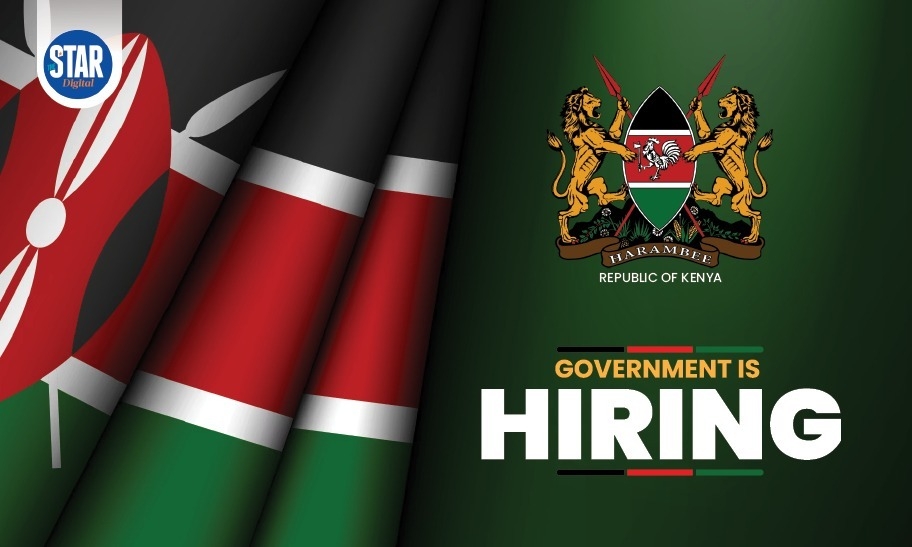Each day, Johnny* (not his real name) wakes up at 8am, promptly making his way to the shops near his village. He buys a cigarette. As the hours tick by, his friends stream in, joining him at their 'base' under a tree.
Johnny and his friends share cigarettes among themselves, buying the sticks with loose coins thrown their way by friends and relatives passing by. Packets of muguka pass around the group of young and middle-aged men as they engage in detailed discussion on whatever topic that comes to mind. Occasionally, somebody comes with a bottle of alcohol, which they drink together.
The group starts breaking up after 9pm as members leave one by one. Johnny is usually the last to leave. Before the Covid-19 curfews, Johnny would go home after midnight, but nowadays, he has to be home by 10pm. He is not married.
Johnny and his friends do not have phones, not even simple models. Lack of phones means nobody calls them to offer casual jobs. Most of their clothes are faded and about to tatter. Their teeth are stained from chewing muguka and excessive smoking. Their shoes have holes. They hardly take a bath. It is not surprising that most members of the informal roadside group have neither wives nor girlfriends.
Asked about his situation, Johnny says, "Kusema ukweli nimetafuta kazi lakini sijafanikiwa. Mimi niko tayari kufanya kazi yoyote. (To say the truth, I have not succeeded in getting a job. I am ready to do any work.)" However, Johnny only has a high school certificate. His family could not afford the training fees at the local vocational training centres. Despite this limitation, Johnny is waiting for a job, any job. He is now in his mid-thirties.
This is the lifestyle of a large number of young people in Kenya today. In reality, it is a life of mere existence because there seems to be no purpose other than to sit, smoke and drink.
The young people who have fallen into this lifestyle can best be described as zombies because they look and behave as such. After listening to these groups discuss current affairs, it is obvious that these young men are intelligent persons who somehow ended up on the fringes of society. How did they end up that way?
A lot of it could be explained by drug abuse, specifically the use of alcohol, muguka and bhang (marijuana). A study done at the Coast by Moi University researchers found that unemployment was the main reason why the youth got into drug abuse. This was followed closely by high poverty levels and low costs of obtaining the drugs.
The effects of drug abuse are as diverse as the types of drugs available. They range from those afflicting individuals to widespread societal effects, such as poor health, poor personal hygiene, dropping out of schools, prostitution and increased crime.
A UN report discussing substance abuse among Kenyan youth quotes a chief saying, "Their health is bad because most of them don't find time to eat well. The only time they have is to buy drugs, so instead of saying let me buy lunch, they rush to the places where the drugs are sold, then they continue to use the drugs."
Listening to Johnny and his friends in the cool shade of the roadside tree, one cannot help but notice that most of their conversation revolves around getting high, or what they call "steam". They hardly talk about personal development. It is sad seeing a young man in his mid-thirties preoccupied with the next bunch of muguka, or the next glass of cheap alcoholic spirits. There are a few married men in the group, but they have neglected their families.
THE SOLUTION?
Society should adopt a proactive approach in dealing with youth zombification. The young men sitting under trees all day are growing into middle-aged men with no jobs, no money, no families, no property and nothing in their lives except stained teeth. Many of these young men do not come from completely poor families. Often, relatives help connect these young people with jobs, but the affected men can't keep a job. Family members try starting businesses for them but it often ends up in disappointment. What, then, is the solution to the problem?
The solution starts in the families of affected youth. Too often, families keep quiet about their young people who have plunged into problems, assuming the matter will take care of itself. The young person may not know that his anti-social behaviour is hurting the family. The discussion should be followed by an agreed set of actions towards getting the affected individual to take responsibility for his life.
Such a discussion would be a two-way process, where the young man expresses his views on his situation. Sometimes, the youth already have proposals on how to get out of a mess but they are not given a chance to talk, and that's why businesses opened for them keep failing.
In the long term, it is necessary to inculcate societal values in children so they grow up knowing their roles in society. Children should be empowered from an early age. They should be given responsibilities as they grow up so that when they get to adulthood, they already know how to handle responsibilities. Key to value-based parenting is by living according to the values you wish to see in your child.
One of the reasons many youths feel frustrated is the realisation that all the hard work in school did not result in jobs. Parents and teachers should emphasise that education is the key to opening up opportunities in life. The more educated one is, the more options they have to choose from whether in terms of career advancement or self-employment.
The world of today is increasingly moving towards automation, meaning that there will be fewer and fewer jobs in future. This will require a shift in mindset away from looking for jobs towards selling one's skills (craftsmanship) or getting into a trade.
Edited by T Jalio













